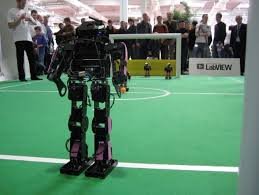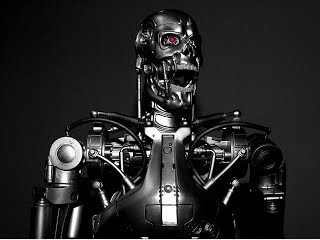The Disadvantage Of Robotic In Our Society

However, despite these pluses, there are clear disadvantages of the utilization of robotics in the home. Many may think there are no negative factors that robots bring to the table, that they help us, make life easier, and are harmless. But in retrospect, giving robots too much access to our daily lives could lead to disaster worldwide. There are three major points that can be considered the leading disadvantages of the usage of robots. First, robotics cannot respond in times of danger as humans can. Next, the production and purchasing of robots is very expensive and in this time of economic crisis this could harm the global economy. Finally, robots have a specific job to do that is ordered by their operator, and if the robot malfunctions, this could cause chaos. In addition, we humans could become overly dependant upon robot technology.

Back tracking to the subject of the advantages of robots and how they can aid the disabled and elderly, we have to also understand that these people can find themselves in dangerous situations that cannot be handled by robots. We cannot invest our entire trust in robots to care and give companionship to our family members. If an emergency does occur, the robot is not going to be able to dial 911 and give the emergency services the vital information they need.
The next disadvantage of robotics in the home is its high cost of for both the production and the purchasing. I will explain more about the economics of robotics in the home in the next section, but for now I want to focus on the disadvantages of them. Robots cost millions of dollars to build and companies are investing vast amounts of money in the involved research and programming. Robotics is currently being used in factories across the world and people have been increasingly losing their jobs as robots become more efficient and precise than humans (N/A Author, 2011). But robotics in the home could cause also conflict because not everyone is going to financially be able to own one, even if they really need it. Even now, robots used such as the Roomba and Scooba cost a significant amount of money, and they just do trivial tasks. And if companies keep investing in this business and it eventually fails, it could cause catastrophic fall in the stock market.

The final disadvantage is the ensuing human dependence on technology and robotics in the home. Even today, people depend on technology and could not bear to go a day without it, and this technology is nowhere near as nifty and advanced as robots. An excellent example of what could come to be is the Disney film Wall-E (Morris, 2008). In this film, society is falling apart and the humans are depending on robots to rebuild it. On a smaller scale, this could start in the homes across the world. Simple things such as getting up from the couch to make dinner and cleaning the house keep us active and moving. If robots complete all of these tasks ,what will make us move from the couch and stay active? Our dependence on robots will cause huge changes in society, and most definitely not for the better human interaction and development is a must for survival.